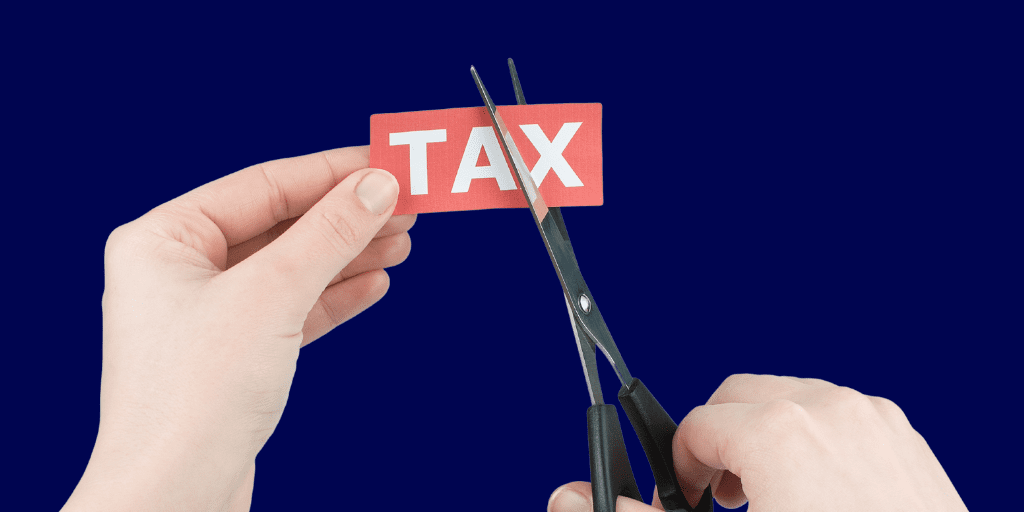Tax Considerations for Short-Term Rentals: A Guide for Property Owners
June 17, 2024

Summer is here, and if you own an Airbnb, VRBO, or other short-term rental property, your calendar is filling up with bookings.
Taking advantage of the extra income that comes from a short-term rental is nice, but it’s also crucial to understand some of the tax issues related to owning such a property.
Business Income vs. Passive Income
First, it’s essential to understand whether your rental income is business income or passive income for tax purposes. The classification affects how your income is taxed and what deductions you can claim.
- Business income. Your rental is a business if you provide substantial services to your guests, such as daily cleaning of the property while it is occupied, providing meals, and other hotel-like services. You might also have a business if you own several properties and have employees to help manage them. This classification allows you to deduct business expenses on Schedule C of your tax return, and if you incur a loss for the year, you can use that loss to offset other sources of income, such as wages. However, the income is self-employment, so you must pay self-employment taxes on it.
- Passive income. Rental income is generally considered passive. Passive income rules limit the ability to offset rental losses against other types of income. This means if your property incurs a loss for the year, you can’t use that loss to offset other forms of income, such as wages or income from another business. Most property owners fall under this category. If you’re one of them, you must report income and expenses on Schedule E.
The tax code provides an exception to the passive loss limitation rules for short-term rental owners who qualify for real estate professional status. This status is for property owners extensively involved in real estate rental activity. This status provides significant tax benefits, as you can treat rental income as active income, and your rental deductions aren’t limited.
To qualify for real estate professional status, you must meet both of the following requirements:
- Devote more than 50% of your personal service activity time to real estate trades or businesses
- Spend at least 750 hours during the tax year providing services within real property trades or businesses
Vacation Home Rules
Some rental properties don’t count as a business or a passive rental. This is the case if your rental property is a vacation home.
The IRS has specific rules for vacation homes rented out part of the year and used personally for the rest. The treatment of income and expenses depends on the number of days the property is rented versus personal use.
- Primarily rental use. If you rent the property out for more than 14 days during the tax year and your personal use does not exceed the greater of 14 days or 10% of the total days rented, you must report all rental income and can deduct expenses proportionately.
- Primarily personal use. If you rent the property for 14 days or fewer during the tax year, there’s a short-term rental tax loophole. You don’t have to report the rental income, but you can’t deduct any rental expenses.
If you rent your property through a platform like Airbnb or VRBO, you may receive a 1099-MISC form reporting your rental income, even if the rental falls under the short-term rental tax loophole. If this happens and you don’t include the income on your tax return, you may receive a notice from the IRS. A tax professional can help you report the non-taxable income on your return or respond to the IRS notice.
The remainder of this article focuses on properties solely used as a rental property with no personal use.
Deducting Expenses and Losses
You can deduct various expenses for managing and maintaining short-term rental properties. Common deductible expenses include:
- Mortgage interest and property taxes
- Repairs and maintenance
- Utilities like electricity, water, gas, and internet, if included in the rental agreement
- Property and liability insurance
- Advertising the rental as available
- Legal and professional fees
- Cleaning and laundry
Depreciation
Depreciation allows you to deduct the property’s purchase price over its useful life, typically 27.5 years for residential rental property. Only the building’s value is depreciable, not the land.
You can also depreciate improvements to the property, such as installing a new dishwasher, replacing the flooring, or remodeling a bathroom.
Claiming depreciation can result in substantial tax savings, but calculating depreciation for tax purposes is complex. It’s a good idea to work with tax professionals who can help you maximize depreciation deductions by claiming accelerated depreciation methods, including bonus depreciation. A cost segregation study may also help you claim larger depreciation deductions by separating building components into assets with shorter depreciation lives.
Importance of Record-Keeping
Maintaining detailed records of your short-term rental days (and personal use days, if applicable) and rental expenses is essential for claiming tax deductions and complying with tax laws.
Some of the records you may need to maintain include:
- Rental periods. Keep a log of rental days versus personal use days.
- Income records. Document all rental income received.
- Expense receipts. Save receipts for all deductible expenses. It’s helpful to open a separate checking account for the rental and run all income and expenses through it.
- Depreciation schedules. Maintain cost basis records for long-term assets, depreciation deductions, and asset disposals.
Occupancy Taxes
So far, we’ve focused on the federal income tax components of short-term rental. However, there may be state and local tax implications as well. Many cities rental property owners collect and remit occupancy taxes on short-term rentals. These taxes, sometimes referred to as hotel taxes, vary by location.
Work with a tax professional familiar with your area’s requirements. They can help you:
- Research local requirements to determine the specific occupancy tax rules and rates in your area
- Register with local tax authorities
- Collect occupancy taxes from guests and remit them to the authorities on a timely basis
Maximize Your Real Estate Investments with Hood CPAs
Navigating short-term rental tax strategies can be complex. For personalized guidance and peace of mind knowing you’ve complied with all relevant tax laws, schedule a free consultation with Hood CPAs. Our team of experienced professionals can provide tailored advice to help you maximize the tax benefits of short-term rentals while avoiding potential pitfalls.
Our knowledge hub
Empower your decisions with on-demand, relatable insights.


